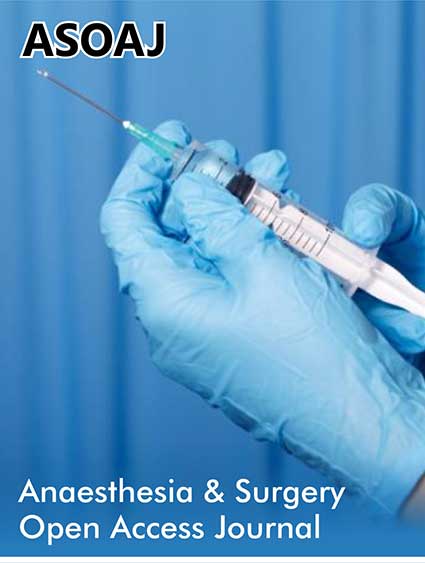 Research Article
Research Article
Determine Possible Associations Between Epidural Analgesia, Maternal Fever and Neonatal Outcome in the Indian Population: Observational Study
Nagaraju Munagala1*, Girishkumar Modi2 and Vijay Kumar3
1Anesthesiologist, Tawam Hospital, UAE
2Anesthesiologist, FLTA, Tawam Hospital, UAE
3Anesthesiologist, ESAIC, IDCCM, FCAI, Tawam Hospital, UAE
Nagaraju Munagala, Anesthesiologist, Tawam Hospital, UAE.
Received Date: June 15, 2023; Published Date:July 06, 2023
Abstract
Introduction: Epidural analgesia was introduced in 1942 and since then has been regarded as a main-stay for labor pain relief. Epidural analgesia is not only safe and well tried in over millions of women across the world, but it also causes the most maternal satisfaction among different techniques of analgesia. Epidural anesthesia can effect thermoregulation through multiple mechanisms that, depending on the circumstances, can result in an increase in core temperature.
Objective: To determine possible associations between Epidural analgesia, maternal fever and neonatal outcome in the Indian population.
Materials and methods: This is a prospective study of women delivered over four month’s period from May 2011 to August 2011. All women who delivered in the hospital during this period are included in this trial. Elective LSCS patients are excluded. A dose of 0.125% bupivacaine 10 ml with 2mcg/ml of fentanyl was administered initially. After satisfactory block was obtained, a continuous infusion of 0.125% bupivacaine with 2 mcg/ ml fentanyl at the rate of 8 -10 ml/hour was started. The temperature changes in women who choose epidural analgesia and the women who do not take epidural analgesia for labor are recorded every hour. After the delivery neonatal APGAR score at one minute and five minutes of birth, is noted in the labor ward. Sepsis screening of the neonate if done was recorded.
Result: Of the 223 women studied, 143(64.12%) received epidural analgesia during labor and 80(35.87%) did not received epidural analgesia. Of the 223 women 31.39% (n=70) developed fever compared to 68.61% (n=153) did not developed fever. Of the women who received epidural analgesia (143), 38.46% (n=55) developed fever>37.5°C during labor compared with 18.75 %(n=15) of women not receiving epidural analgesia (80). All the neonates born to either women with intrapartum fever or without intrapartum fever has 5-minute APGAR score of 9-10.
Conclusion: Epidural analgesia is found to be only incidental finding in parturient who developed clinical fever (temperature>37.5°C). So, Epidural analgesia should not be avoided based on the fear that analgesia induces fever or because of concerns about unnecessary neonatal evaluation for possible sepsis.
Keywords:Epidural analgesia; maternal fever; Neonatal outcome
-
Nagaraju Munagala*, Girishkumar Modi and Vijay Kumar. Determine Possible Associations Between Epidural Analgesia, Maternal Fever and Neonatal Outcome in the Indian Population: Observational Study. Anaest & Sur Open Access J. 4(2): 2023. ASOAJ. MS.ID.000583.
-

This work is licensed under a Creative Commons Attribution-NonCommercial 4.0 International License.






